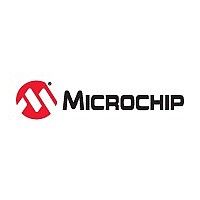PIC18F4550-I/ML Microchip Technology Inc., PIC18F4550-I/ML Datasheet - Page 150

PIC18F4550-I/ML
Manufacturer Part Number
PIC18F4550-I/ML
Description
44 PIN, 32 KB FLASH, 2048 RAM, FS-USB 2.0
Manufacturer
Microchip Technology Inc.
Datasheet
1.PIC18F4550-IML.pdf
(320 pages)
Specifications of PIC18F4550-I/ML
A/d Inputs
13-Channel, 10-Bit
Comparators
2
Cpu Speed
12 MIPS
Eeprom Memory
256 Bytes
Input Output
34
Interface
I2C/SPI/UART/USART/USB
Memory Type
Flash
Number Of Bits
8
Package Type
44-pin QFN
Programmable Memory
32K Bytes
Ram Size
2K Bytes
Speed
48 MHz
Timers
1-8-bit, 3-16-bit
Voltage, Range
2-5.5 V
Lead Free Status / Rohs Status
RoHS Compliant part
Electrostatic Device
- Current page: 150 of 320
- Download datasheet (6Mb)
PIC18F2450/4450
14.6
Many USB applications will likely have several different
sets of power requirements and configuration. The
most common power modes encountered are Bus
Power Only, Self-Power Only and Dual Power with
Self-Power Dominance. The most common cases are
presented here.
14.6.1
In Bus Power Only mode, all power for the application
is drawn from the USB (Figure 14-10). This is
effectively the simplest power method for the device.
FIGURE 14-10:
14.6.2
In Self-Power Only mode, the USB application provides
its own power, with very little power being pulled from
the USB. Figure 14-11 shows an example. Note that an
attach indication is added to indicate when the USB
has been connected.
FIGURE 14-11:
DS39760A-page 148
USB Power Modes
V
V
100 k
V
SELF
~5V
~5V
BUS
~5V
BUS
BUS POWER ONLY
SELF-POWER ONLY
Attach Sense
BUS POWER ONLY
SELF-POWER ONLY
100 k
I/O pin
V
V
V
V
V
V
DD
USB
SS
USB
DD
SS
Advance Information
14.6.3
Some applications may require a dual power option.
This allows the application to use internal power prima-
rily, but switch to power from the USB when no internal
power is available. Figure 14-12 shows a simple Dual
Power with Self-Power Dominance example, which
automatically switches between Self-Power Only and
USB Bus Power Only modes.
FIGURE 14-12:
14.7
The USB module has specific clock requirements. For
full-speed operation, the clock source must be 48 MHz.
Even so, the microcontroller core and other peripherals
are not required to run at that clock speed or even from
the same clock source. Available clocking options are
described in detail in Section 2.3 “Oscillator Settings
for USB”.
14.8
Microchip provides a number of application-specific
resources, such as USB firmware and driver support.
Refer to www.microchip.com for the latest firmware and
driver support.
V
Note:
V
SELF
~5V
~5V
BUS
100 k
Oscillator
USB Firmware and Drivers
DUAL POWER WITH SELF-POWER
DOMINANCE
Users should keep in mind the limits for
devices drawing power from the USB.
According to USB Specification 2.0, this
cannot exceed 100 mA per low-power
device or 500 mA per high-power device.
100 k
DUAL POWER EXAMPLE
Attach Sense
© 2006 Microchip Technology Inc.
I/O pin
V
V
V
USB
DD
SS
Related parts for PIC18F4550-I/ML
Image
Part Number
Description
Manufacturer
Datasheet
Request
R

Part Number:
Description:
20-Pin USB Flash Microcontrollers
Manufacturer:
MICROCHIP [Microchip Technology]
Datasheet:

Part Number:
Description:
PIC18F With 128-segment LCD Driver And 12-bit ADC, 8KB Flash, 768B RAM, CCP, MSS
Manufacturer:
Microchip Technology
Datasheet:

Part Number:
Description:
PIC18F With 128-segment LCD Driver And 12-bit ADC, 16KB Flash, 768B RAM, CCP, MS
Manufacturer:
Microchip Technology
Datasheet:

Part Number:
Description:
PIC18F With 192-segment LCD Driver And 12-bit ADC, 8KB Flash, 768B RAM, CCP, MSS
Manufacturer:
Microchip Technology
Datasheet:

Part Number:
Description:
PIC18F With 192-segment LCD Driver And 12-bit ADC, 16KB Flash, 768B RAM, CCP, MS
Manufacturer:
Microchip Technology
Datasheet:

Part Number:
Description:
Microcontrollers (MCU) 48KB 3328 RAM 52 I/O
Manufacturer:
Microchip Technology
Datasheet:

Part Number:
Description:
Microcontrollers (MCU) 64KB 3328 RAM 52 I/O
Manufacturer:
Microchip Technology
Datasheet:

Part Number:
Description:
32kB Flash, 2kB RAM, 1kB EE, NanoWatt XLP, LCD 64 QFN 9x9x0.9mm T/R
Manufacturer:
Microchip Technology
Datasheet:

Part Number:
Description:
32kB Flash, 2kB RAM, 1kB EE, NanoWatt XLP, LCD 64 TQFP 10x10x1mm T/R
Manufacturer:
Microchip Technology
Datasheet:

Part Number:
Description:
128kB Flash, 4kB RAM, 1kB EE, 16MIPS, NanoWatt XLP, LCD, 5V 80 TQFP 12x12x1mm T/
Manufacturer:
Microchip Technology
Datasheet:

Part Number:
Description:
32kB Flash, 2kB RAM, 1kB EE, NanoWatt XLP, LCD 64 QFN 9x9x0.9mm TUBE
Manufacturer:
Microchip Technology
Datasheet:

Part Number:
Description:
32kB Flash, 2kB RAM, 1kB EE, NanoWatt XLP, LCD 64 TQFP 10x10x1mm TRAY
Manufacturer:
Microchip Technology

Part Number:
Description:
128kB Flash, 4kB RAM, 1kB EE, 16MIPS, NanoWatt XLP, LCD, 5V 80 TQFP 12x12x1mm TR
Manufacturer:
Microchip Technology











